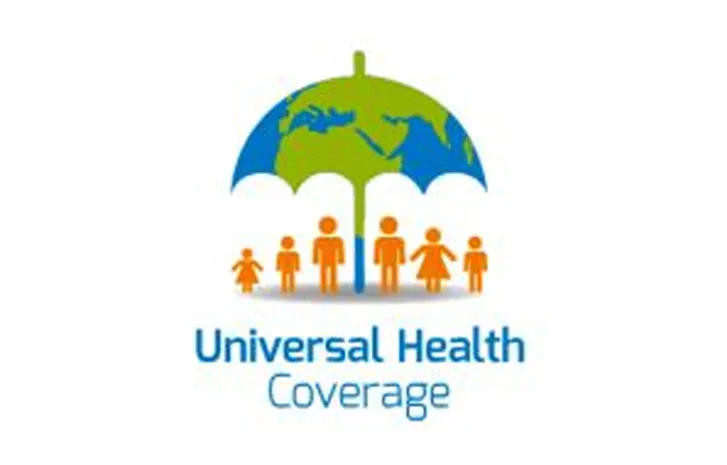
As global momentum toward Universal Health Coverage (UHC) intensifies, Nigeria’s 65th National Council on Health (NCH) has taken bold steps toward healthcare transformation. Convened at the Mohammed Indimi Centre for Distance Learning, University of Maiduguri, from November 18 to 22, 2024, the gathering addressed critical healthcare challenges under the theme, “Accelerating Pathways to Universal Health Coverage: Strategies for 2030 Success.”
The council brought together over 1,150 delegates, including government officials, civil society, development partners, and healthcare professionals, to deliberate on equitable healthcare access and sustainability strategies.
The Minister of Health and Social Welfare, Prof. Muhammad Pate underscored UHC as a moral imperative, emphasising the government’s duty to provide accessible, equitable and quality care.
WHO country representative for Nigeria, Dr. Walter Mulombo highlighted Nigeria’s progress on the UHC Service Coverage Index, which rose from 25 in 2003 to 44 in 2019. However, he pointed out that out-of-pocket expenditures accounted for 75 per cent of health spending in 2020, creating barriers for many Nigerians. He noted persistent gaps in maternal and child health indicators and called for bold leadership and community-driven solutions to close these gaps.
Maternal mortality rates remain a significant concern, with Nigeria accounting for nearly 20 per cent of global maternal deaths. Barriers such as limited emergency obstetric care and inadequate funding have slowed progress toward Sustainable Development Goals.
Transformative Resolutions
The council adopted key resolutions aimed at accelerating progress toward UHC:
· Digital Health Transformation: The initiative includes digitising health records, enhancing data interoperability, and improving disease surveillance systems. Described by USAID’s Dr. Bolanle Olusola-Faleye as a “game-changer,” the initiative promises to enhance service delivery and pandemic preparedness.
· Strengthening Human Resources for Health (HRH): The council resolved to institutionalise HRH units across all 36 states and introduce local government HRH focal persons. Health policy expert, Dr. Nkechi Olaniyi noted that sustainable funding and political will are essential for this initiative’s success.
· Gender-Based Violence (GBV) Services: A landmark decision to integrate GBV services into primary healthcare aims to support survivors and promote gender equity. Special adviser to the president on health, Dr. Salma Anas praised this move as transformative for survivors who have long suffered in silence.
· Climate Change Adaptation: Delegates approved the Health National Adaptation Plan (H-NAP), addressing climate-induced health vulnerabilities such as cholera and malaria. WHO’s Dr. Edwin Isotu Edeh described the framework as “critical,” though its success depends on inter-sectoral collaboration.
· Infection Prevention and Control (IPC): The revised 2024 IPC policy emphasises resource allocation, training, and compliance monitoring to curb hospital-acquired infections and strengthen pandemic preparedness.
· Emergency Medical Services: Institutionalising the National Emergency Medical Services and Ambulance System (NEMSAS) as an independent agency represents progress in emergency care access, particularly for underserved areas.
The council called for adequate budgetary allocations, stakeholder accountability and robust community engagement to sustain these initiatives. Civil society organisations, such as the African Health Budget Network, are committed to monitoring funding transparency and implementation outcomes.
Innovative financing mechanisms, including expanding the Basic Health Care Provision Fund (BHCPF) and public-private partnerships, were discussed as vital strategies to address funding gaps.
Resolutions emphasised empowering primary healthcare centres and integrating community-driven solutions to build local trust and resilience. Minister of State for Health, Dr. Iziaq Adekunle Salako stated, “True health transformation begins with the people. Community engagement is key to achieving UHC.”
Delegates also identified socio-cultural barriers, particularly in rural areas, as critical challenges influencing health-seeking behaviour. Addressing these barriers is essential for improving healthcare access in underserved communities.
Call to Action
The 65th NCH meeting serves as both a milestone and a call to action in Nigeria’s journey toward achieving UHC by 2030. Turning resolutions into measurable results will require bold leadership, sustained funding, and collective effort.
Prof. Pate aptly concluded, “We are building a system that leaves no Nigerian behind. Together, we can make UHC a reality.”
The council’s outcomes underscore that achieving UHC is a national priority requiring a whole-of-society approach. By addressing systemic challenges and implementing these resolutions, Nigeria can create a healthcare system that serves its people effectively and equitably.

